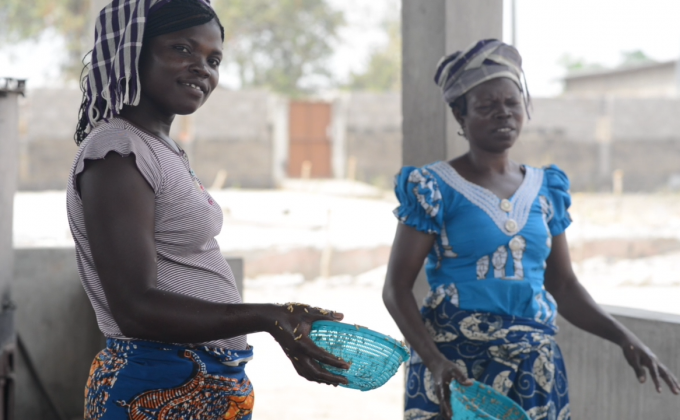
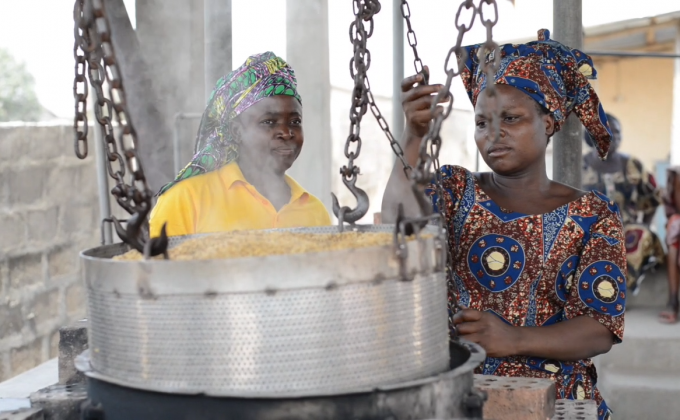
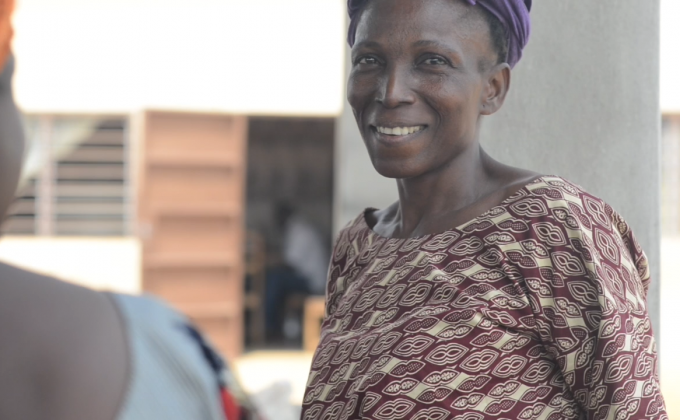
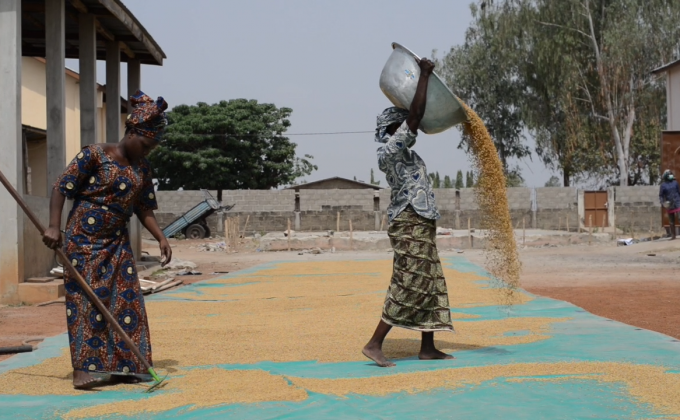
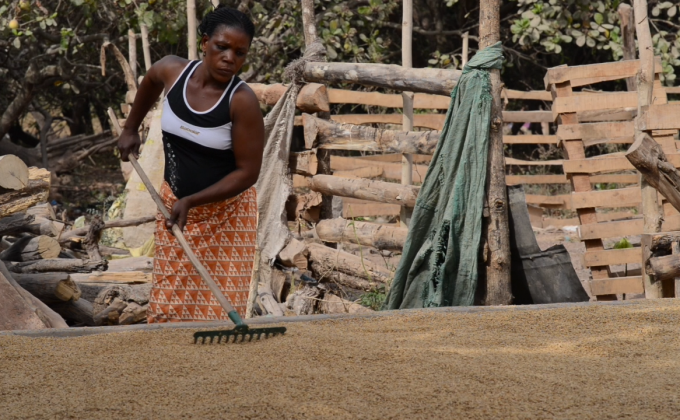
Thanks to these advances, the partner organizations professionalize, gain credibility, and access larger markets.
Since the start of the project, the quantity of parboiled rice sold every year by the partner structures has multiplied by more than 10, attaining 335 tons in 2022.
With the CECI’s support, these changes have also transformed the traditional financial management of the partner structures, which now rely on a computerized system and improved administrative, accounting, and financial procedures.
This year, a fifth communal processing centre was built in Savalou. Connected to four irrigation sites, these infrastructures have meant that the women parboilers have more modern and environmentally friendly means of production and are less impacted by variations in rainfall. Their yields and production quality subsequently improve.
Beyond the technical tools, we also facilitate access by women parboilers to functional literacy. Able to read and write in French, they can now look up information, communicate, plan, and monitor their activities more easily, which improves the organization and governance of the cooperatives. This literacy has gone beyond the professional framework and given them more autonomy in their personal lives, building their confidence in themselves and their ability to take initiative.
Some 532 people, of whom 506 are women rice parboilers, have received literacy training.
“ALL OF THESE ACTIONS HAVE CONTRIBUTED TO BUILDING TODAY, IN THIS REGION OF BENIN, A PRIME EXAMPLE OF SUCCESSFUL FEMALE ENTREPRENEURSHIP”
– excerpt from “Les femmes étuveuses dans l’attente d’un marché sécurisé,” 24h au Bénin
Faithful to our values, we also work to sustainably transform the societal environment in which Beninese women live and to reduce inequality between women and men. The men in the rice industry are especially targeted. We want to make them allies and we do this by promoting positive masculinity. The changes in perception generated, combined with a stronger leadership by the women involved in the project, enable these women to be better represented in the industry’s consultation frameworks and participate more in political dialogue to defend their interests. They no longer fear expressing their ideas or presenting their arguments, in both a professional context and a personal one (village meetings, families, etc.). This represents a major evolution in gender dynamics in Benin.
In 2023, in the mixed production structures supported by the project, 37 percent of the positions on
the decision-making bodies were occupied by women, some of whom held strategic functions, such as president, treasurer, or secretary. In 2017, women only occupied
25 percent of these positions.
"TODAY, THE FEAR OF JUDGMENT, THE FEAR OF SPEAKING... ALL THAT HAS BEEN BLOWN AWAY. WE SPEAK UP BEFORE ANY AUDIENCE, EVEN THE AUTHORITIES. [...] WE ARE NOT THE SAME AS WE WERE FOUR YEARS AGO "
Cyprienne DOSSOU, commune of Glazoué